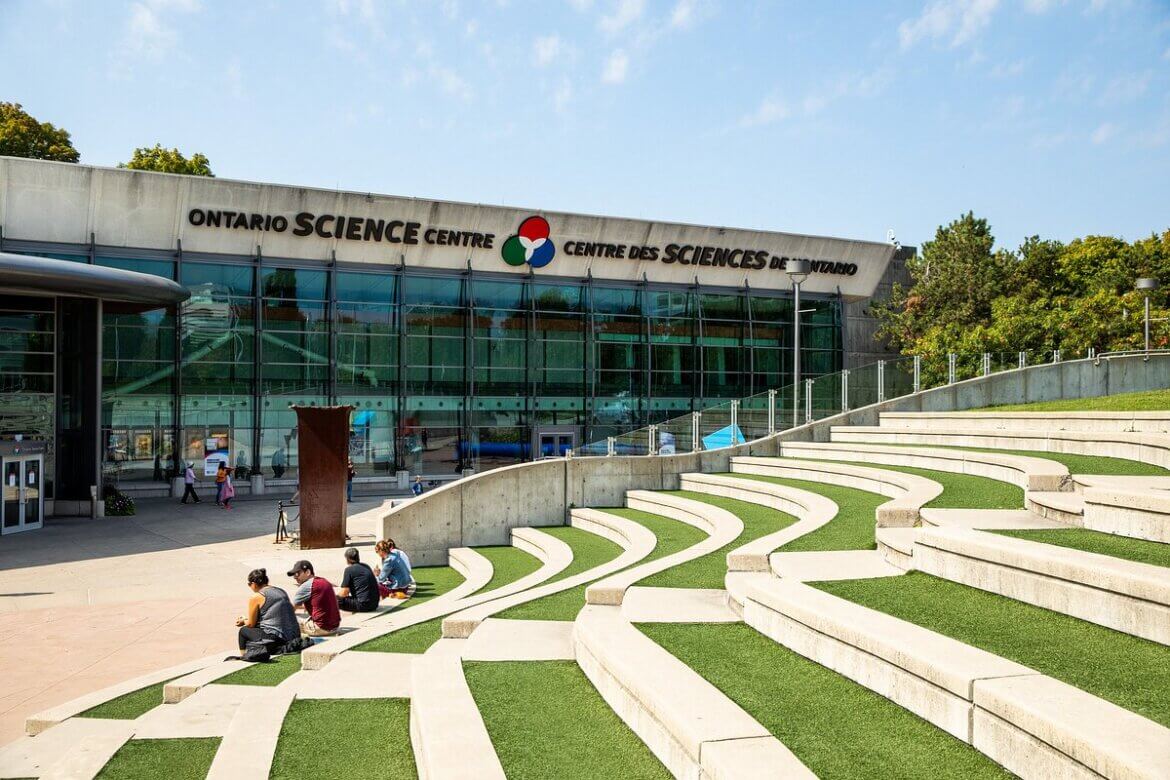Visiting sciences centres as kids was formative for each of us.
Mary vividly remembers her first visit to the Montreal Planetarium in elementary school. The experience left her with a sense of the wonder and awe of the universe and its expansiveness and a curiosity which led her to study advanced science and math classes in high school, CEGEP and then engineering at McGill University.
Donna spent her career studying lasers and their application to our lives. A visit to the Ontario Science Centre with her dad at just ten years old was the first time she ever saw one. The experience sparked her curiosity and interest and led her to the work she does now.
Ashley Rose Mehlenbacher works at the intersection of the humanities and sciences, thinking about how we talk about science and technology, especially in spaces open to the general public.
Science centres remind all three of us that science is for everyone. This is particularly true for children.
At a time when trust is declining across many sectors, it remains high in science — this is because of efforts like science centres which bring science to everyone. They’re a conduit for kids to discover the wonders of science and learn to respect scientific expertise and the scientific process.
This is why the decision of the Ontario provincial government to close the Ontario Science Centre is so short-sighted and such a significant blow to public engagement with science and technology. This decision not only shutters a key resource for science education, it also undermines efforts to build public trust in science.
The Ontario Science Centre has been a beacon of interactive learning and scientific inquiry for decades. By closing its doors, we lose a vital space where young minds can explore and understand the wonders of science in a hands-on environment.
Science centres are dynamic environments where curiosity is sparked, and complex concepts are made accessible through engaging exhibits and programs. They provide a tangible connection to science, one that textbooks and digital media alone cannot offer.
Building public trust in science and technology is more crucial now than ever. In an age where skepticism about scientific consensus on issues like climate change and vaccine efficacy is alarmingly high, science centres serve as vital bridges between the scientific community and the public that they serve. By witnessing and participating in scientific experiments and demonstrations, visitors can see firsthand the evidence and reasoning behind scientific conclusions.
The University of Waterloo’s TRUST (Trust in Research Undertaken in Science and Technology) scholarly network is one important initiative aimed at addressing the growing mistrust in some areas of science and ensuring scientists and developers continue to engage in public conversations to create technology that is trustworthy by design.
TRuST seeks to foster dialogue and understanding between scientists, educators and the public. Its goals align perfectly with the mission of science centres: to promote transparency, engagement and education in science and technology.
The closure of the Ontario Science Centre stands in stark contrast to the objectives of initiatives like TRuST. Without such institutions, we lose crucial platforms for public education and engagement. Science centres also contribute to a community’s cultural and intellectual fabric. They inspire future generations of scientists, engineers and engaged citizens.
We urge the provincial government to reconsider this decision in light of the broader impact it will have on public trust and engagement in science and technology innovation. Investment in the Ontario Science Centre (OSC) is an investment in our collective future, ensuring that science and technology continue to progress hand-in-hand with public engagement.
Photo courtesy of DepositPhotos





